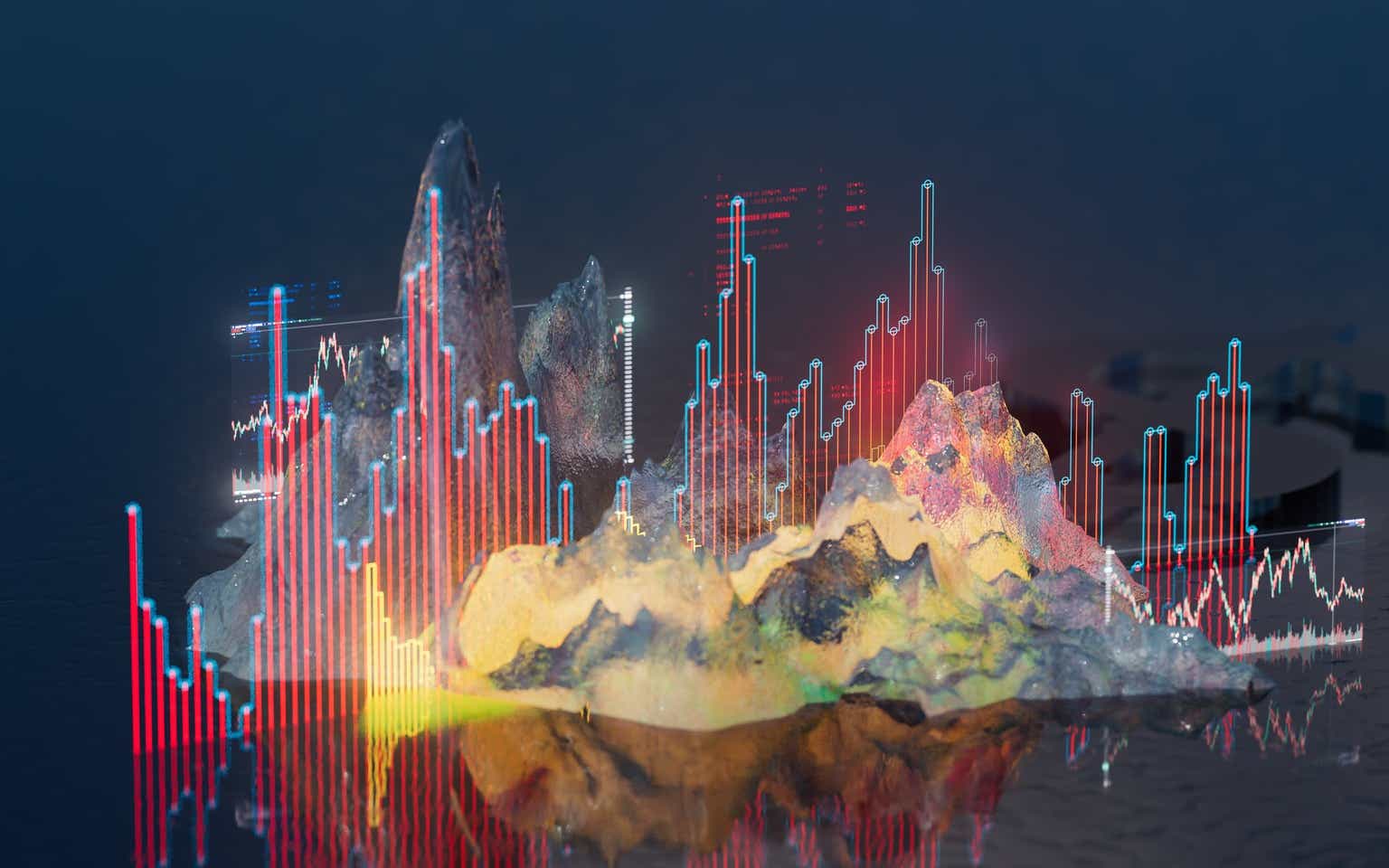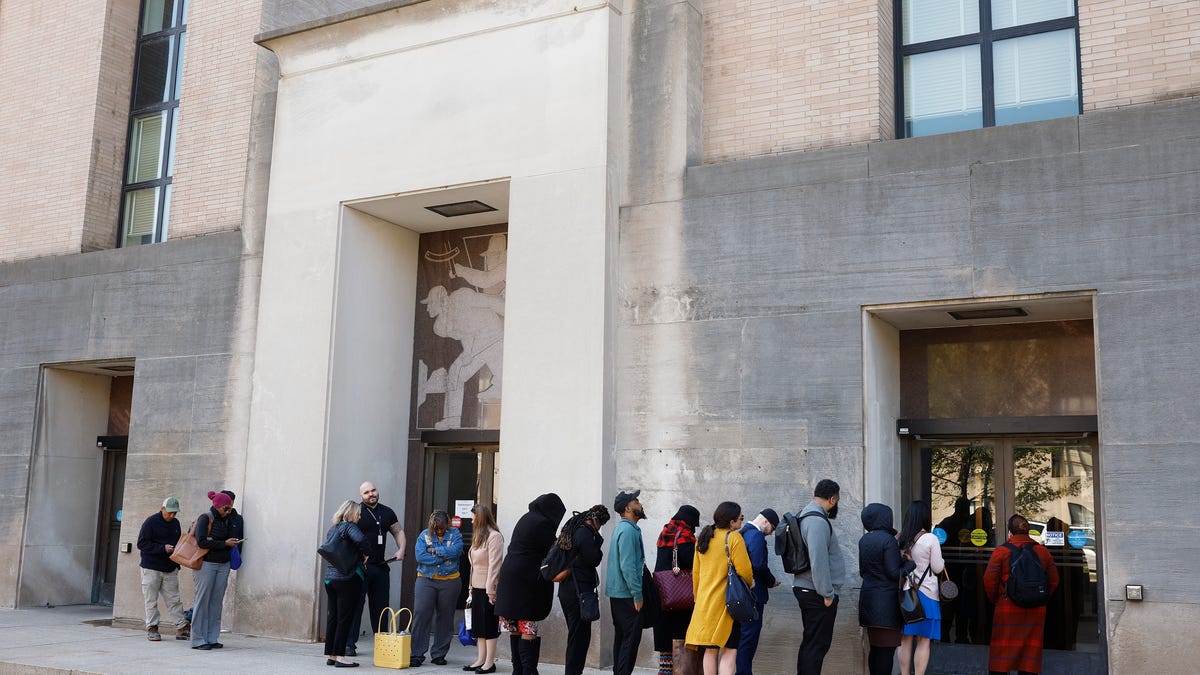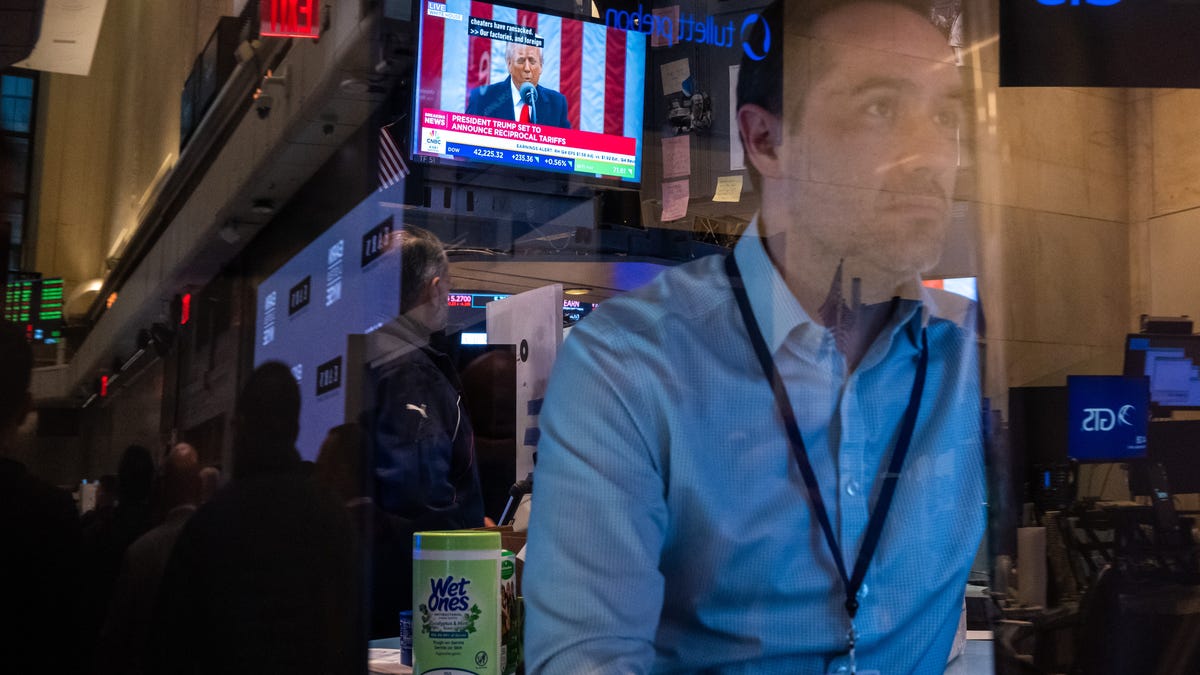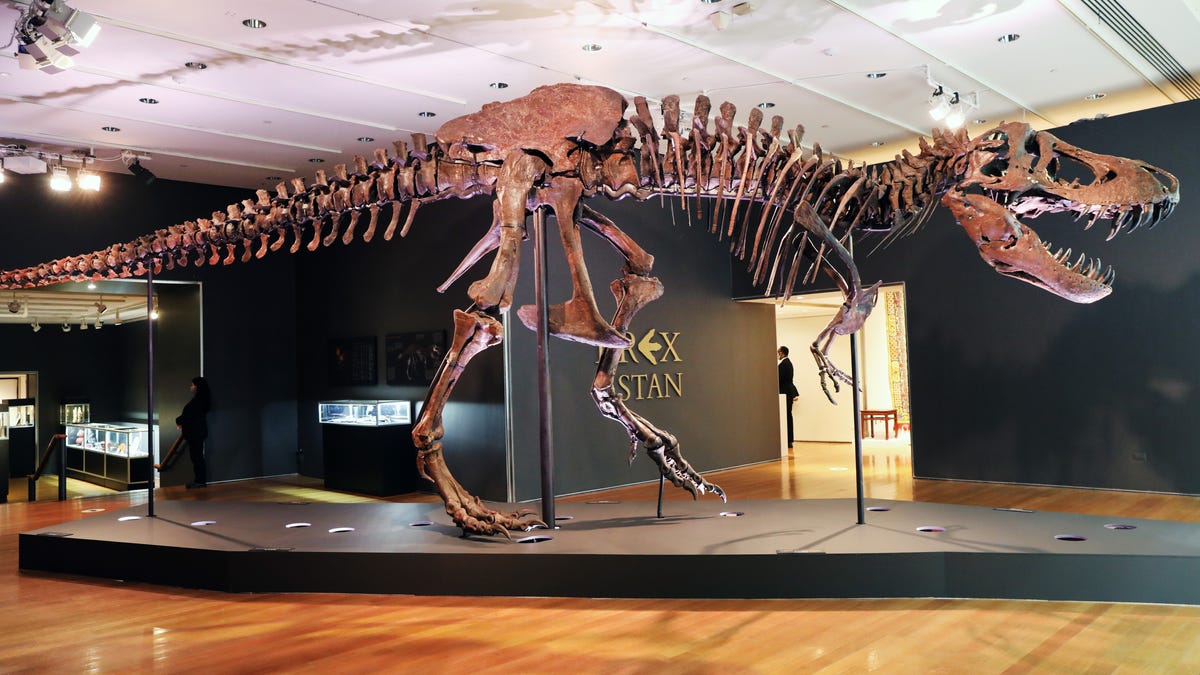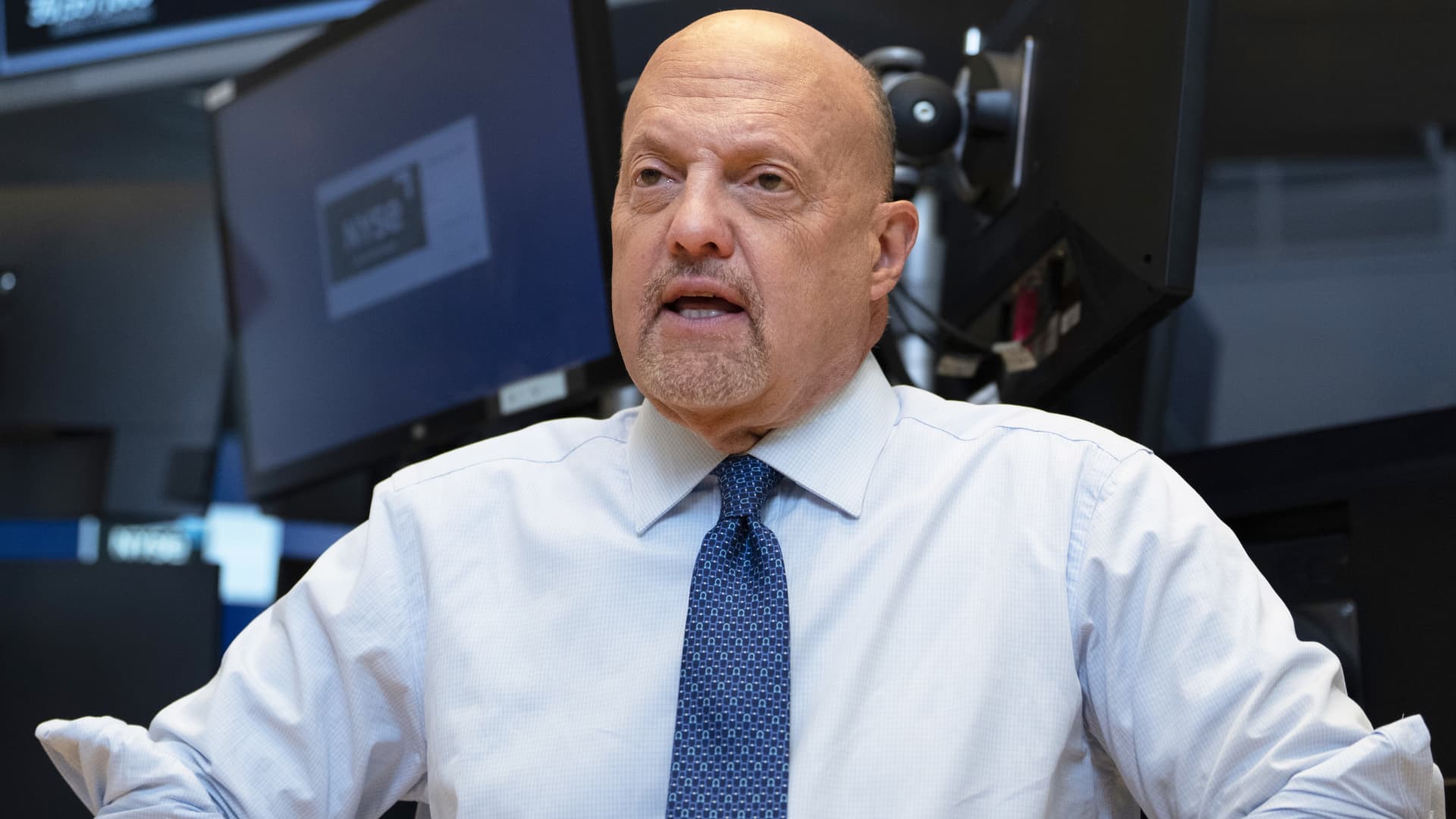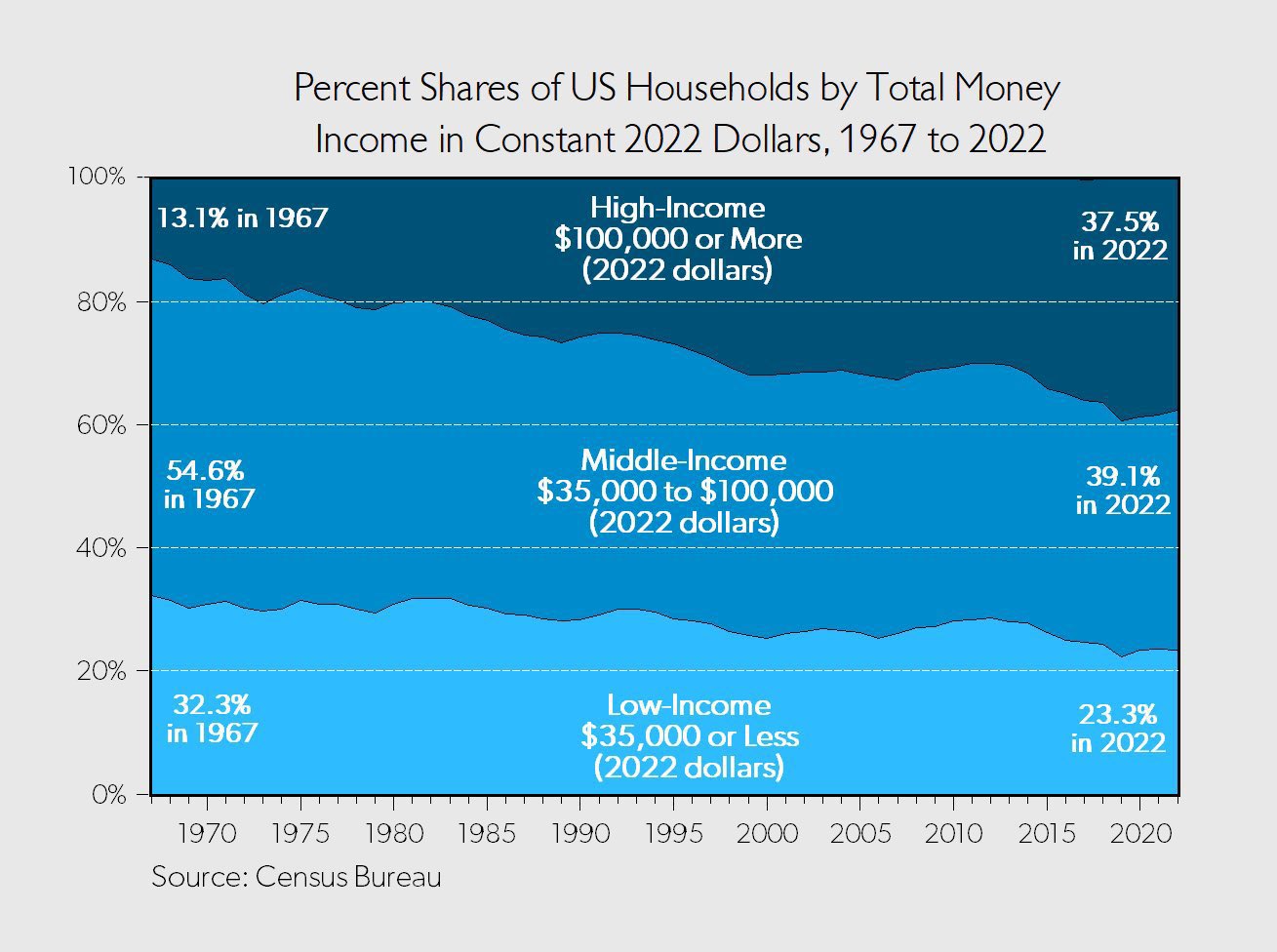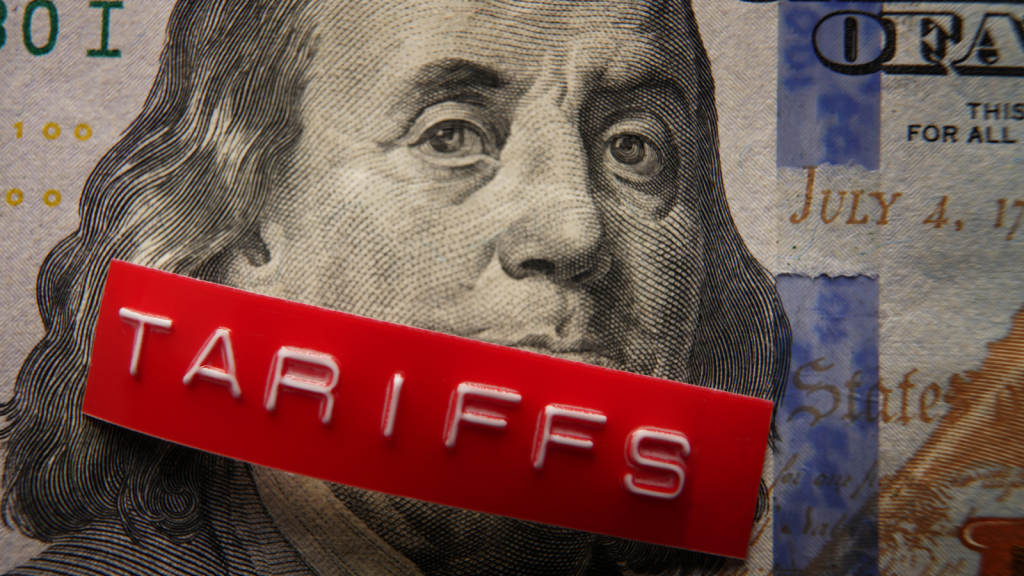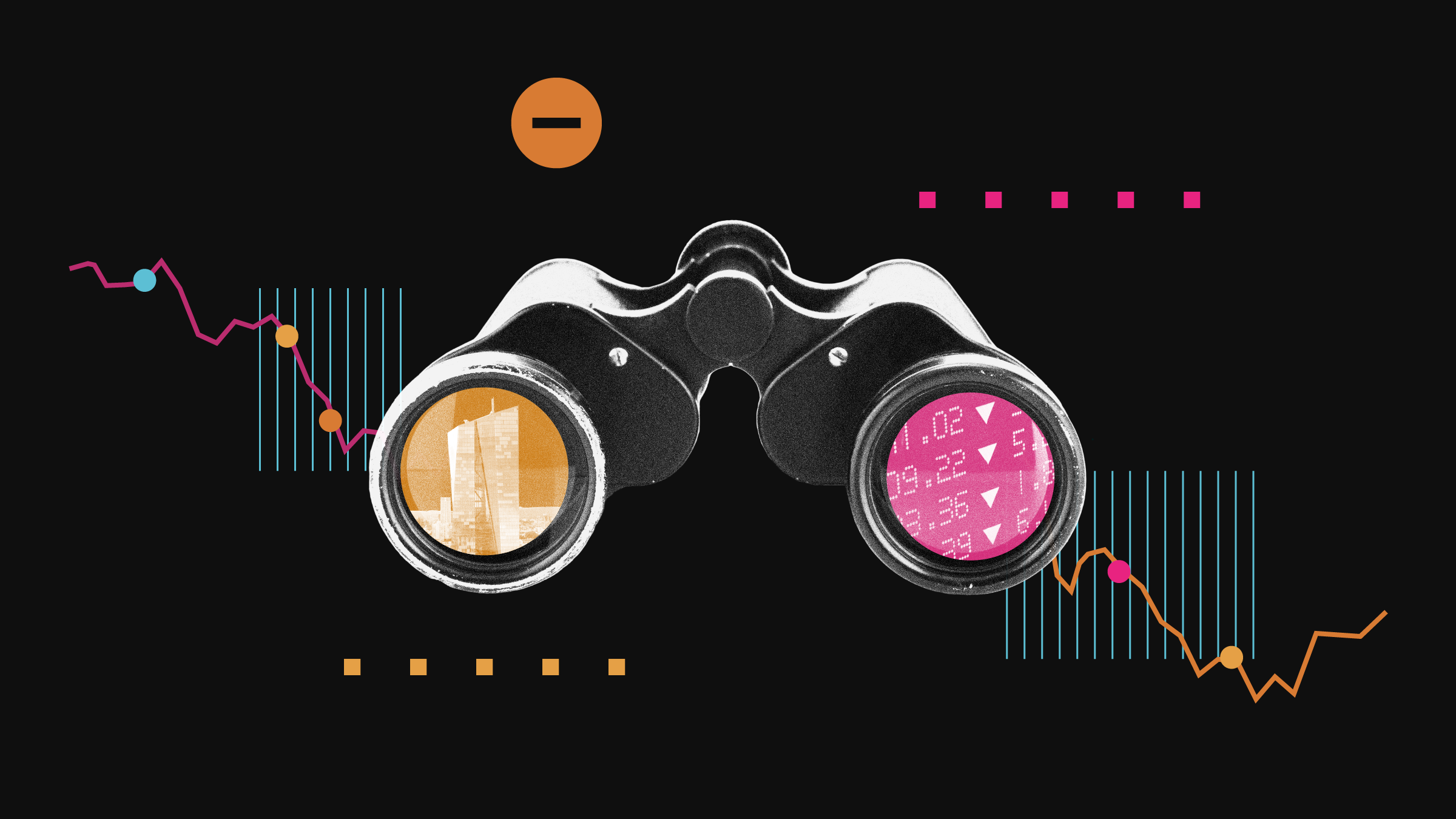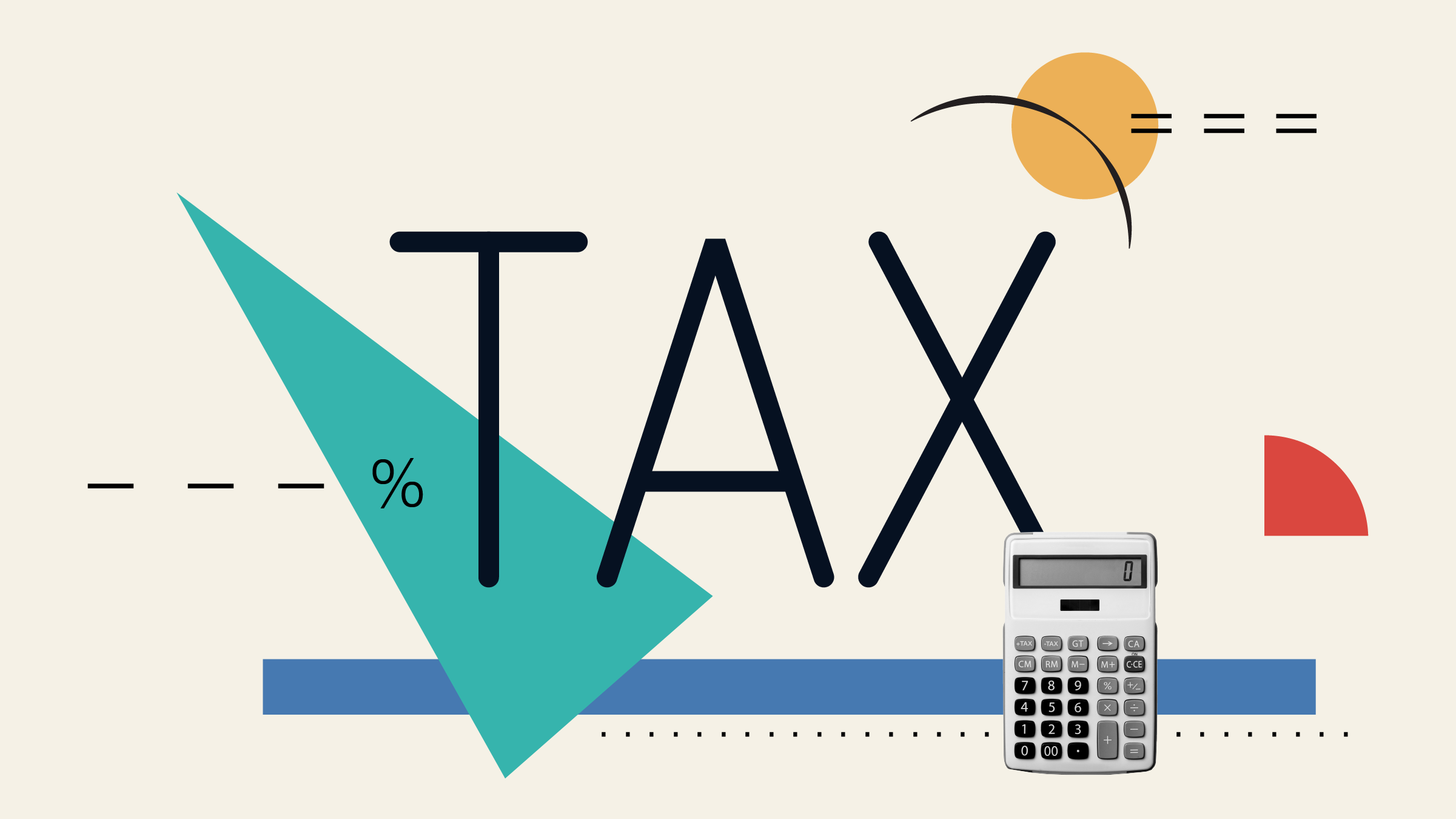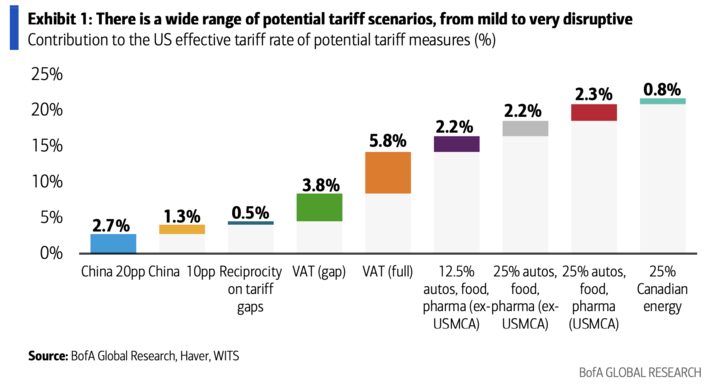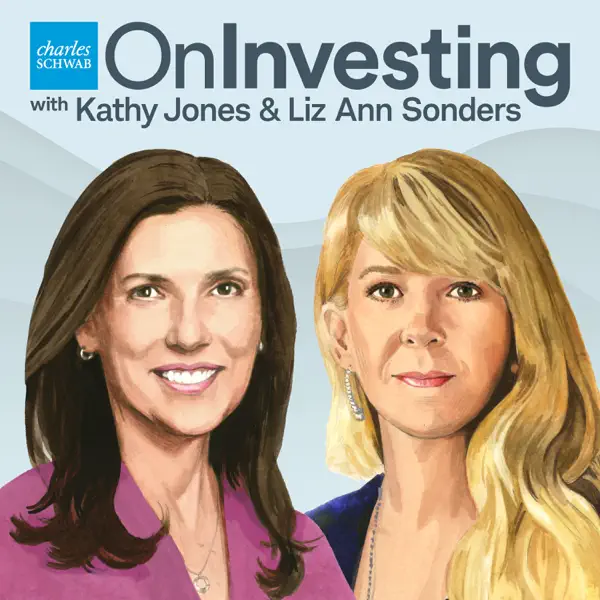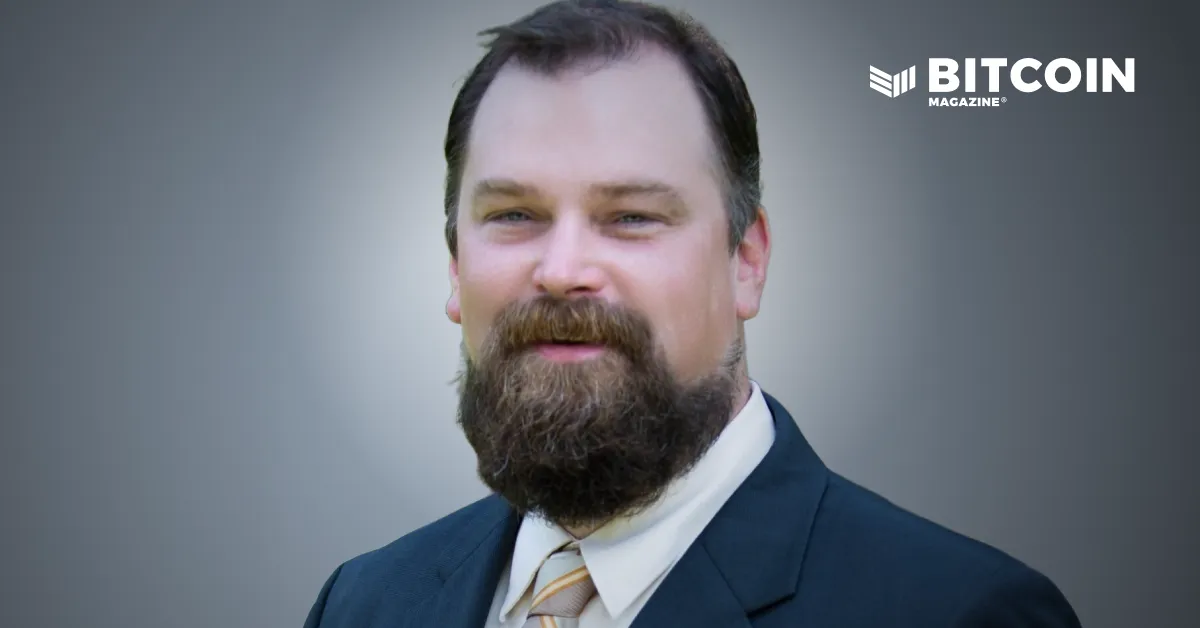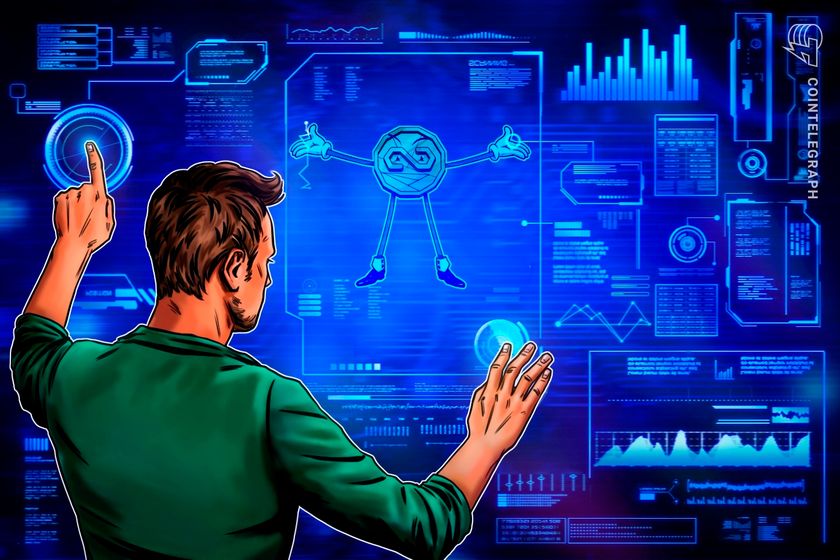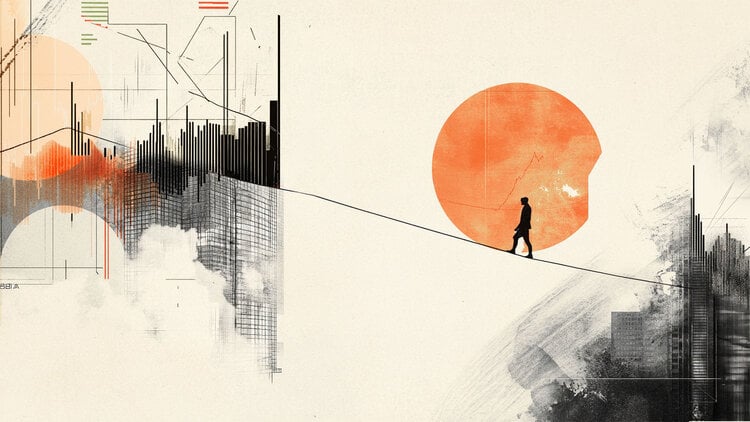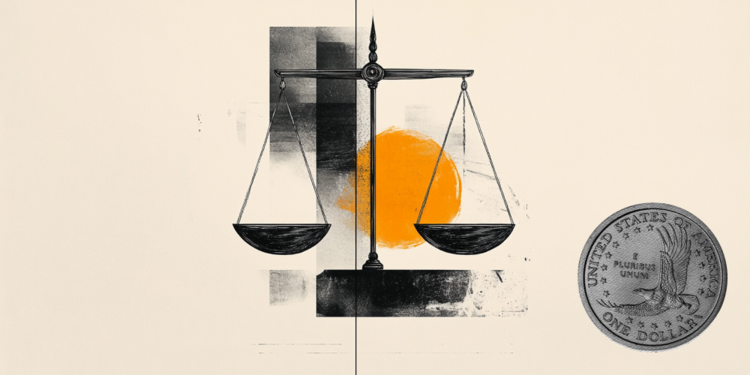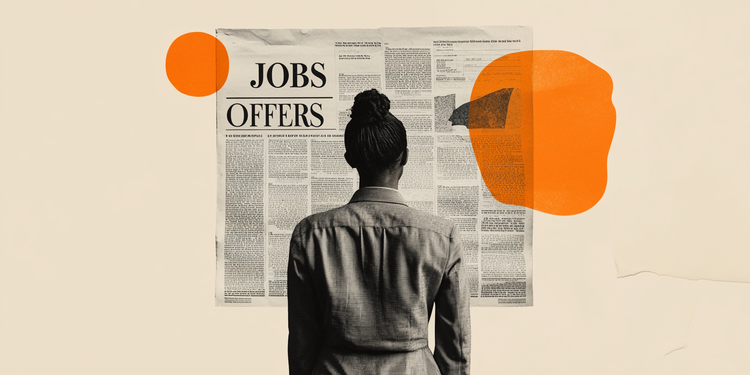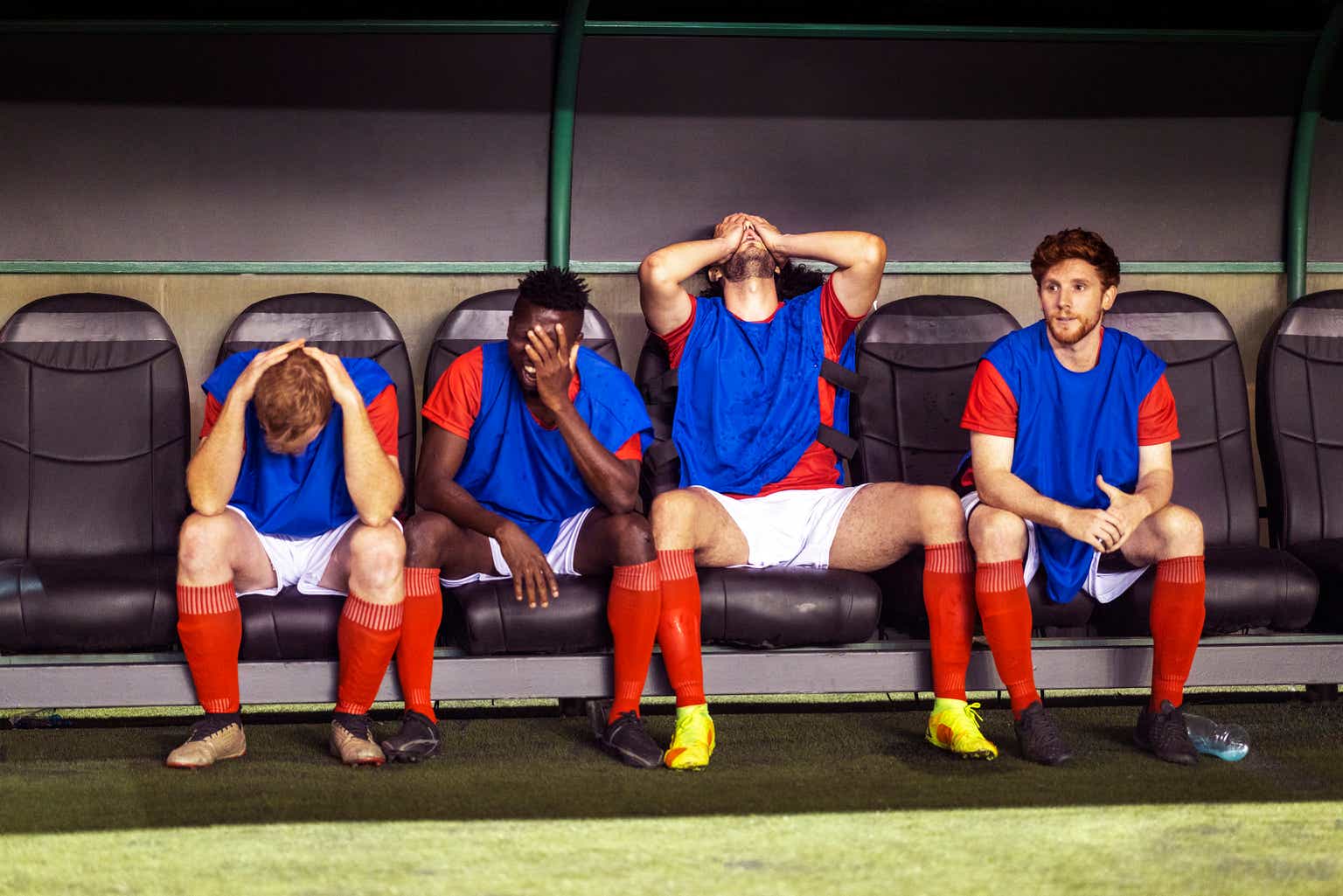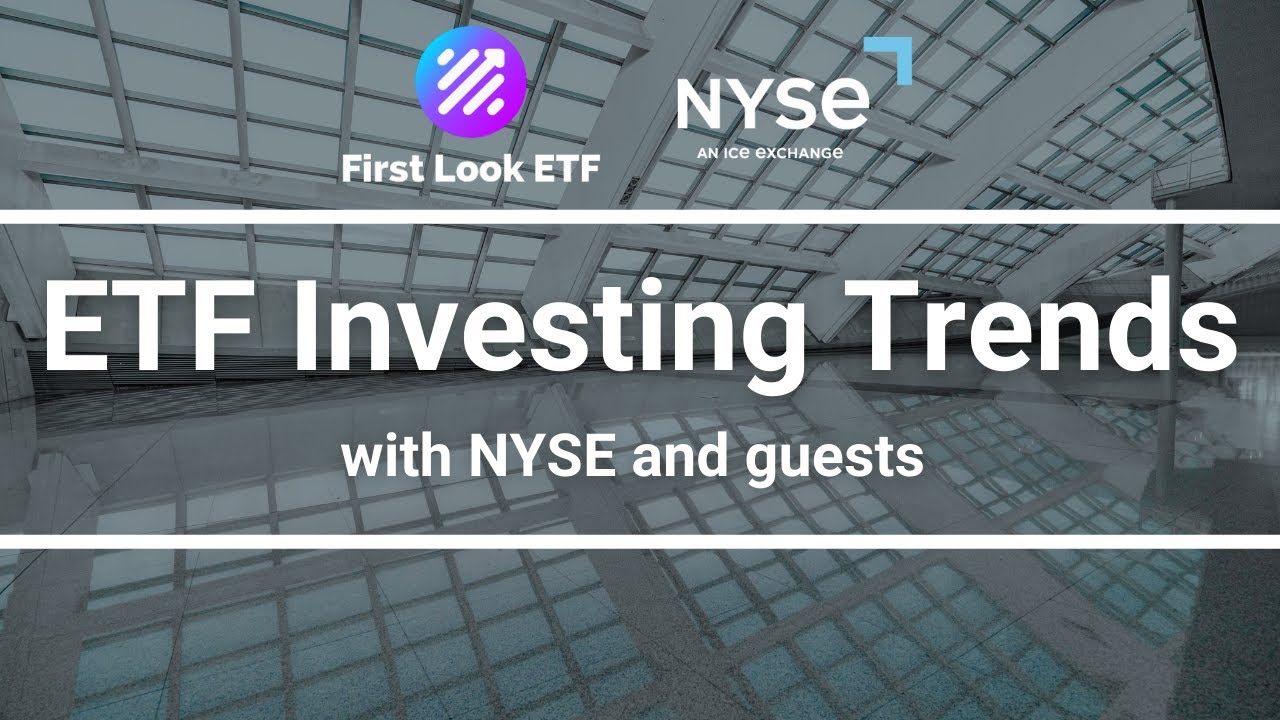Roblox CEO and cofounder David Baszucki is ‘optimistic’ about the future of gaming
“Just as it's hard to imagine when we had the horse and carriage what a modern car would be like, we have the horse and carriage of games today,” Roblox CEO and cofounder David Baszucki told Fortune.

On this episode of Fortune’s Leadership Next podcast, cohosts Diane Brady, executive editorial director of the Fortune CEO Initiative and Fortune Live Media, and editorial director Kristin Stoller talk to David Baszucki, the CEO and cofounder of Roblox. They talk about the future of interactive entertainment; online safety; and how Baszucki sees Roblox as not just a gaming company, but a wellness company.
Listen to the episode or read the transcript below.
Transcript
David Baszucki: We're very optimistic that this is going to be human acceleration technology. We're going to see higher-quality experiences. We're going to see types of games, I believe, that no one's ever thought of. So I'm kind of optimistic that, just as it's hard to imagine when we had the horse and carriage what a modern car would be like, we have the horse and carriage of games today. It's hard to imagine what they'll be like in 10 or 20 years when, magically, AI can superpower them.
Diane Brady: Hi, everyone. Welcome to Leadership Next, the podcast about the people…
Kristin Stoller: …and trends…
Brady: …that are shaping the future of business. I'm Diane Brady.
Stoller: And I'm Kristin Stoller.
Brady: This week, we are speaking with Dave Baszucki, a.k.a. Builder Man.
Stoller: Builder Man!
Brady: The CEO and cofounder of Roblox.
Stoller: Now, Diane, in the spirit of video games, tell me: What was the first video game that you ever played?
Brady: I don't remember it having a name, but I have kids, and so I would say when I really got into gaming was when we got a Wii.
Stoller: Oooh, what’d you play?
Brady: I played the one, the—Just Dance, and then all the Wii Sports.
Stoller: Oh, yeah.
Brady: And then I evolved to Fortnite, Forza. So I'd say, if you look at my children's life, that is my gaming career. How about your gaming career?
Stoller: You're up on the games. So I think it was the N64. My brother and my cousins and I used to do Mario Party all the time. I was always Princess Peach. And then Oregon Trail as it progressed into elementary school, and then big Sims girl—was really into that.
Brady: Princess Peach is now your new handle at work. [Unintelligible] So Roblox is interesting because I think of it not just as a gaming platform, I mean, I think of it as a community. It's an ecosystem. How would you describe it?
Stoller: Yeah, I think you're right. And I'm curious to ask him, you know, are you considering yourself now an entertainment brand? Because you're, you know, half play, half creator and builder platform, but then you're also partnering with all these celebrities and getting into all these really big brand partnerships.
Brady: Well, and let's face it, in the age of AI, generative AI, what does it even mean to be a game, right? I think that's really interesting. And of course, they've gotten a lot of criticism for their safety issues.
Stoller: They have. I'm really curious. I know it's a big issue for them about the mental health and how to protect kids on their platform. It's a big issue for me. My brother, he's a therapist, and he is really into gaming addiction, and it's such a nascent field.
Brady: Well, there's lots to discuss, and we'll be right back with Dave Baszucki after the break.
Brady: We're entering an era of innovation unlike any we've witnessed before. You all see it. The pace of technological change is staggering, and it's challenging for any leader to keep up. We spoke with Jason Girzadas, the CEO of Deloitte U.S., which is the longtime sponsor of this podcast. Here's his advice for leaders on how to navigate this new world.
Jason Girzadas: There's probably nothing more important for CEOs, no matter what organization they're leading, to really be thinking about technology's impact on our workforce. It's really a function of, how do you think about technology in concert with your workforce? We at Deloitte talk about it as the age of width, the age of technology with your workforce, and really embracing this idea of the codependency of technology and workforce. We're also an environment of a very tight workforce where there's a scarcity of top talent. That's going to be the challenge for organizations, to demonstrate to top talent that they can grow and evolve the work that they do, working with leading technology in a very aligned way. Finally, it's what top talent really wants in an organization, is to learn and grow and to be part of an organization that's supportive of them actually embedding technology in their work.
Brady: So, Dave, I have to start with your favorite Roblox game. Which is it?
Baszucki: Well, I have four children, and I love them all equally. So there's, you know, we're talking about Roblox, a platform where millions of people make 3D games and experiences and then share them with people around the world. So my initial answer would be: I love them all equally.
Brady: Dave, you gotta pick one.
Baszucki: So the one I always talk about is a really fun experience on Roblox made by someone we know really well. It was the first Roblox experience that validated [that] when Roblox was on PC and Macintosh, it could go to mobile, and it was the first experience I ever played on mobile. It was called Survive the Natural Disaster. It's not really a game that we would typically think about. It's me and a bunch of friends on an island, and a hurricane comes and a lightning storm comes, and we run around and try to avoid the natural disaster. It was fun in that it validated a social, just playing together, as opposed to maybe more regimented games. And so I'll pick that one because it's the very first time I played with Roblox on a mobile phone and showed that the same thing built for a PC could work on a phone.
Brady: I love that. Well, I too played dodge the disaster, but I guess it would be more in real life. Do you actually play? Have you played Roblox?
Stoller: I did. Dave, I played Roblox on the flight yesterday, and I played Work at a Pizza Place, and I think I did pretty good as a cashier. I'm not gonna lie.
Brady: Earning minimum wage?
Stoller: Yeah, yeah.
Baszucki: Were you able to play on an airplane Wi-Fi?
Stoller: I was.
Baszucki: That's amazing.
Stoller: I did have to buy the Wi-Fi, though, on United.
Baszucki: Okay, but we have worked really hard, you know, Roblox is—80 or 90 million people every day are using it, and we've worked really hard to make it work in places where internet is really bad, and so I have not heard of people playing Roblox on an airplane. It's a little bit of a validation.
Stoller: Oh, good. I'm glad I could provide that for you. Yeah, it didn't work the whole time, but a good stretch.
Baszucki: Yeah, it's a validation of all the work we've done making Roblox work in places with rough internet. So thanks for sharing that.
Brady: I of course watch people like KreekCraft play. I'm in the “watch the real players play the games.” But let me ask you, Dave, let's right-size for people Roblox, because on the one hand, it's, of course, a gaming platform, it's a building platform. I think of it as a community, an ecosystem, you know, even becomes existential: What is gaming? Where is Roblox today? How would you describe the totality of what you do?
Baszucki: When you said the existential [comment] about, is it even gaming? I think that hits spot-on the notion that Roblox is something bigger than that. It is the notion that, historically, people are looking for ways to communicate and be together. We've used the phone, we've used text. We're right now using video and that over time as 3D immersive technology gets better and better, that will sit side by side those other things. And in addition to being together when we're gaming, we may be together when we're shopping, or we may be together when we're going to school, if we can't be there in person. So there really is a big background to this of 3D doing things together. When we look at the totality of Roblox, as I said, 85 to 90 million daily people every day. Millions of creators, making creations. What were originally hobbies now turning into some creators making 10s and 10s of millions of dollars, having studios with more than 200 people, and many of the properties on Roblox now having more than a million daily players. And these include things that are more traditional gaming, but they include NFL Universe, a football simulation. They include Dress to Impress, a new type of gaming where we walk around and pick great items out of a fashion store and compete in a runway show every few minutes. So we're seeing a new gambit of types of games. And a lot of people on Roblox are using it to be with friends when they're playing games. I think you're spot on when you think of and we think about how big is this really going to be?
Stoller: Now when you say studios, it kind of makes me think of an entertainment studio. Do you think the next evolution of Roblox is going to be, obviously, still keeping the gaming, but moving away toward being, you know, having entertainment and shows and live shopping and, yeah, that you have concerts. What's the next evolution?
Baszucki: I think the more we get used to using 3D side-by-side video or other forms of consumption, 3D is interactive, which is a little different than video. Video, we can have a video chat, but when we watch a movie, it's not as interactive. We can jump into an interactive movie. So it's very different to go to a 3D concert than to watch a concert. In a 3D concert, I can look to my friends next to me. We can dance to the concert. We can walk around in the concert. We can talk while we're seeing the concert. What we see is many brands experiencing more traditional games: SpongeBob, Tower Defenses on Roblox, as I mentioned, NFL Universe is on Roblox. The interesting thing is going to be when this entertainment does become interactive, and we can see it coming from both sides. Netflix did a wonderful thing with Black Mirror, I believe, where they had some interactive episodes.
Stoller: And you could choose where to take the storyline.
Baszucki: Video becoming interactive. And then on Roblox, we're seeing some stories that are more linear that you follow. So I think we are going to see this confluence to interactive entertainment. There's other things that we just naturally do in the real world. Like shopping, for many of us, has various forms. We go by ourself online. We know what we want to buy. You know where we go, and we just find that and we buy it. But we also—it's really fun to walk around Stanford Shopping Center with a friend and just go into those stores. Capturing that part of fun—going around with friends and trying things on—is something I think we're going to see more and more of in these 3D environments. And I think shopping together, we're going to see that real world simulation.
Brady: Whereas I, of course, want to send my agent out to do my shopping with other agents. So there's that, and we'll get to AI. I want to go back to the genesis, because you did not invent gaming. There was plenty of gaming when you came along. And we're going back, you know, two decades at this point. What did you and your cofounders see as the opportunity? I think of you more in the education space originally. Can you give me some sense of what compelled you to start this, be an entrepreneur in the first place?
Baszucki: Before Roblox, there was another company we started. It was an educational software company called Knowledge Revolution, and we built an educational physics simulator: Simulate physics experiments, see how they work, try them out, balls rolling down ramps, springs on pendulums, measure them. We saw a lot of people taking that educational software and trying to build fun stuff: trying to build cars with it, trying to build buildings, trying to build interactive scenarios to play with. And it was an early, a bit of an early germination idea, that beyond simulation for education, there was really a really interesting consumer space. So after that company was acquired and after taking some time off, my cofounder and I came back to the notion, what if we took this and we made it 3D, if we incorporated avatars, if we made it multiplayer, if we put it in the cloud. And we started having this thesis of this 3D, in-the-cloud, simulation-type technology that would be used for communication and storytelling. We weren't necessarily gamers. We were more riffing off the experience we had at Knowledge Revolution. But we knew we had to do this. So the very first prototype of Roblox was really capturing all of those ideas, which was early on, a new category for 3D multiplayer simulation together. Lots of overlap with gaming, of course, from the start, but we always thought of it as a bigger category than gaming.
Stoller: And when I told my brother I was talking to Dave, and I asked him—he's a big gamer—I said, “Do you use Roblox?” And he said, “Oh, well, I think it's primarily for kids.” And I know that's something you're maybe trying to get away from. Can you talk to us about…[unintelligible] Talk to us about where it started as being for maybe a younger generation, and where you want to see it go.
Baszucki: When we started, we would have the majority of people on Roblox under 13. There was an enormous benefit to that because very early on, the very hard work of building in parallel with the product, the civility and safety system was something we started from the very first month we were alive and went with us as we grew with this. What we see now happening is not necessarily just wanting to get away from that. We think this is an enormous part of our audience forever, under 13. But as our long-term people on our platform get older, as new people hear about Roblox… now much more of the people on the platform are over 13, and we shared that the 17-through-24-year-old group is growing north of 30%. We're also seeing, you know, growth around the world—is that we always had the vision of doing the hard work of making a platform that would be interesting and fun for six or 16 or 26 or 66, so there's a bit of an evolution of that. And we're continuing to see that play out.
Brady: You know, it's interesting, I think about stages of maturity. I remember when everybody on the subway was reading Harry Potter, and I'd say the average age was 47 that I detected. But user-generated content—the nature of that is there's a certain freedom because in the creativity—but I think about when Skittles had a campaign on Twitter, and all of a sudden people were putting Skittles up their nose, and they're like, “Well, wait a second, we didn't want you to do that.” That's what I think about when I hear about the online safety issues that you've had. It's not—of course, you want to protect people, but it must be hard when you have so many creators on the platform. Talk about that, because I know you've taken some steps. And, I mean, the baseline here is you want it to be safe. It just seems hard to control.
Baszucki: Yeah, I would say this is an enormous responsibility. And one of our primary values is: We are responsible. And this really hits home in a few ways. One is having my kids all be on Roblox today, having a lot of employees with kids on Roblox, and also, thinking through having 80 to 90 million daily active people on the platform by and large having amazing experiences, but hearing even one bad experience in person from a person on the platform really puts it all in perspective when we multiply by that scale. We're really optimistic for a bunch of reasons of what's been happening on Roblox and where we're going. One is just month by month, year by year, we ship so many safety improvements, and AI is getting so much better day after day that, historically, all of the content on our platform—image, text, whatever—is more and more going through multiple layers of AI. But I would add it doesn't stop at the content. It also includes—all of the communication on our platform has to go through real-time filtering for the communication. As we introduce voice on our platform, we've developed some of the industry's best voice models, and we've open-sourced those as well to the industry. And we have a bit of a philosophy that, long term, we have to be safe for everyone. We have to be safe for six-year-olds. But there's another really interesting area, which is the 13-through-17 zone, where we're stepping up and saying we want to be involved in safety and civility there, where I think that, where the industry has typically said once you hit 13, you can do anything. And we think about it a bit differently.
Stoller: I wonder, Dave, I also, in addition to safety, think about mental health too. I remember, I was growing up in the ’90s. My mom used to have an egg timer that when me and my brother did video games, she said, “Okay, you have one hour, and when it runs out, you're done. Go outside.” How do you think about [the] mental health of the users on your platform? And I know gaming addiction is an up-and-coming field, but what do you think about that?
Baszucki: We are optimistic. We're optimistic—when we think of the whole social media landscape, and we break down what people use social media for. There is a class of types of social media that is more isolated and alone, which is consuming short videos a lot by yourself. There's another class of social media that involves historically sharing images about myself and having other people see pictures of myself and trading those, and in that area, of course, there's been some concern about difficulties when people meet random people and start sharing their images. Roblox is much more—we see [it] as akin to the future of the phone system, literally, hanging out with other people. And I believe we're going to see more and more research differentiating what happens when we're hanging out with people and doing things together, as opposed to by ourselves, so I'm optimistic about that. We are more and more thinking of Roblox as a wellness company, really, and thinking about how we treat our employees, how we run our cafeteria, all the way to the way we run our safety and civility as having wellness at the core of how we operate the company.
Brady: Metabolic health is something that I know you've done work—both from a philanthropic point of view, you mentioned, in terms of what's in your kitchens. It sounds like nary a chocolate bar shall ever be found in the Roblox vicinity if you work there. But how did that get onto your radar in the first place?
Baszucki: I think we'll tie this back to some of the impetus for thinking about Roblox as a wellness company. We had always from day one built out our safety civility system. Erik, cofounder, we literally built it the first month we were in business. I mean, I would say behind the scenes, I've always thought a fair amount [about] what I'm eating and a fair amount [about] sleep, exercise, sunlight, those kinds of things. A while ago, my oldest son, Matt, got hit with bipolar [disorder], and after many, many years of medications, traditional treatments, you know, and a lot of rough times, really, we came across the power of diet for some people with bipolar [disorder]. And in the case of Matt, he went on a ketogenic diet, which means less carbs, more fat. It's really been amazing, and of course we have to do research, and of course we have to validate this, and we have to take all of the anecdotal feedback of hundreds and hundreds of people who post on this to YouTube with full double-blind studies, but those studies are now starting to come in. We have funded these studies. And there is a bit of a theory that for certain individuals, having a balance of energy in your brain, that may be more balanced by less carbs and more fat, can stabilize that. So it's been an amazing journey. We've angled our family philanthropy there. Matt's become a spokesperson. And I'm optimistic that this will be a compliment to many of the other solutions that people use with other mental health things. Coming all the way back to Roblox, it's been really eye opening to think of the company as a wellness company. And so we don't necessarily ban all bad snacks. And this is a big discussion, but we have started labeling all of the snacks in our snack room: Which of these are good energy, which of them are whole foods? We have little check marks on our snacks so people can learn about that. So we're trying to balance freedom. We do have some snacks that aren't good energy and aren’t whole food…
Stoller: Bad energy label?
Baszucki: We don’t…
Brady: For the ne'er-do-well. Can you walk us through your own diet? Because I think especially a lot of people listen to this podcast, they're leaders, they want to be leaders. You're obviously much more conscious about what you put in your body. So how do you eat?
Stoller: And your wellness routine, too, in addition to food.
Baszucki: This is fun. Okay, this is—thank you.
Brady: All right, walk us through. You wake up. What time do you wake up, Dave?
Baszucki: I'm going to [unintelligible] quote: This is not medical advice. Don't try this at home.
Stoller: Good disclaimer.
Brady: We assume that.
Stoller: Yeah.
Baszucki: Yeah, so I do try to stay a little circadian-synced. I say I would be more in bed at nine, up at five than in bed at 11, up at whatever. So I was up early. I typically try to keep my eating in the noon-to-five zone if I can, mostly. I try to combine—you know, for me, I think what's most important is strength exercise with hiking and walking and stretching, stuff like that. For what I eat, I do tend to lean more on the protein-fat side and less on the carb side. So I'm probably under 20 grams of carbs a day. Of course, for those people who are, you know—I would say there's a lot of discussion going on right now around LDL levels, so consult your doctor with all of this. But I also wear a CKM and a CGM at times, which are—you can watch your glucose and your ketones. And I highly recommend CGMs for everyone, which is a continuous glucose monitor. You put a little thing in your arm for two weeks and on your phone, watch your glucose level. And I think this is one thing that, irrespective of keto or anything else, almost every doctor in the world would recommend [that] if you can reduce your sugar, it's going to be for the better.
Stoller: I had two candy bars before this.
Brady: Yeah, I'm sorry, we're gonna talk to our people here. But you know, do you notice? I'm assuming the genesis part of your diet was your son. Do you notice that, other than managing your energy, that you're more effective in any way because you've taken this approach to your personal life?
Baszucki: I feel—it's interesting. This would be my own opinion. When we look at—not that I'm an elite athlete—but if we looked at sports, and we looked at people in the NFL or some sports, you could imagine they have trainers who are trying to get elite athletic performance out of them. I do think for your jobs or my job, it's a little different type of performance. It's not necessarily physical, but it is awareness, out-of-the-box thinking, are we being creative in the moment? And I do think for us, whether CEO, journalists, you name the profession, there's a separate type of training and help that can help us be creative. So in that case, I do think it's helpful. I pretty much feel right now if I went out and ate a giant ice cream sundae right now, if I came back by three o'clock today, I would be a little bit more in slow motion.
Stoller: As someone who has done that at the Mr. Softee across the street from us, yes, I can attest.
Brady: I'm fascinated by all that, [but] to be continued. Let's… [unintelligible]
Baszucki: Back to AI, back to AI.
Brady: Kristin has a question about AI.
Stoller: Back to AI. Thank you, Dave. Okay, so first I want to know, Dave, how are you leveraging AI to simplify content creation right now? And do you have any specific examples or stories you can share with us of how you're moving into this field?
Baszucki: The background on AI at Roblox would be part of that safety [unintelligible] narrative, going back three or four years when we started building AI models to analyze everything on Roblox, the text, the voice, uploaded content, all of that. We got really good at that. We’d run over 200 of these models, we’d build our own models, we’d run them on our own cloud, on our own infrastructure, at really big scale. And an example of that would be the voice model we open-sourced and then joined the ROOST consortium, including Google, some other companies, to try to promote AI for safety. But recently, we've all heard about AI needing training data, whether it's text or image or video data, to build good models. And there's a lot of talk about training on all the world's text, training on all the world's, you know, imagery and things like that. Roblox has an amazing amount of 3D data: Millions and millions of people, building medieval villages, building cars and trucks, building avatars, building trees, building forests, all of that, and this training data is enabling us to build what we're calling a 3D foundational model, part of our cube AI system that we started to demo, and that, very shortly, we're going to be announcing. We said in Q1 of this year, we're going to release 3D on Roblox Generation. And it's not just going to be in Roblox Studio. It's going to be available in any Roblox game, if a creator wants to tap into it. What's exciting about this is we mentioned Dress to Impress as a fashion game. We could imagine many, many people who want to create clothing, not just cutting it out or designing it with traditional tools, but describing the clothing and having the clothing appear. Or we could imagine someone who wants to build a pink cart-themed princess bedroom, describing that and having the bedroom appear so. So, 3D gen we're going to be releasing very soon. We're also going to be releasing text gen. Once again, all of these I'll highlight are wrapped around a safety, civility layer, because we control what's being created on the platform. We're also going to—developers will have access to text generation, which would allow favorite historical figures to, in a sense, come to life and be able to be chatted with.
Brady: I love that. You know, the fact that you use the word "developer" almost sounds a bit quaint to me, like saying "home page" or something like that. In a world of generative AI, we're now at the point where people are seeing business-model transformation. It's got to change the model of gaming itself. How do you think about when you play out how the technology is developing with not just the user experience, but the heart and soul of what you do?
Baszucki: Yeah, we're really optimistic that this will be a more—over time thought of as the same optimism that happened in the Industrial Revolution. And I think at the start of the Industrial Revolution, there was concern. What's going to happen if we have cars and factories, and will everyone still have jobs? We're very optimistic that this is going to be human acceleration technology. We're going to see higher-quality experiences. We're going to see types of games, I believe, that no one's ever thought of. No one has really ever built a 3D game where the character in the game has access to magic creation or the character has the ability to instantaneously have a George Washington to talk to. So I think…
Brady: …decide they don't like you and stomp out of the game because…
Baszucki: Yeah, so I'm kind of optimistic that, just as it's hard to imagine when we had the horse and carriage what a modern car would be like, we have the horse and carriage of games today. It's hard to imagine what they'll be like in 10 or 20 years when, magically, AI can superpower them. I feel there's still going to be a huge need for AI-accelerated creators. Creators will be more productive. They will still build 3D experiences, so I'm very optimistic about what's going to happen.
Stoller: Do you see a future where most of the Roblox content is AI-generated versus user-generated? Or do you think that'll never happen?
Baszucki: Behind the scenes, it's still user-generated, but it's AI-accelerated. And I see a future where, what is maybe right now a primitive castle in a primitive field with someone trying to build some knights and horses, turning into something that looks extremely polished. And where all of a sudden, a young person's—what we see we go, that's really high-quality output. I think we've seen similar things with the introduction of computing, with Photoshop, even with graphics things, that the slide shows today that a 9-year-old makes in PowerPoint or Google Sheets is arguably better than what I would see, you know, a long time ago, where artists were building it. So I think we're going to see that same thing.
Brady: You’re giving us FOMO for ourselves 20 years from now. You know, you have so much data. And I think about the areas of growth, like you've got huge growth in places like India, Japan. I'd love to hear your insights. What are some of the cultural differences? Or, as you've seen growth in different parts of the world, what insights have you gleaned from that that you just find interesting as a leader or that you think can be applied in different ways? I mean, I'm wary of stereotypes, but there are differences I'm sure in people, how they use your platform?
Baszucki: Yeah. I like the notion that some IP, over time, becomes universal, even if it starts with a germination in one region. I think in video, Squid Game, as an example of that, starts in South Korea, but it's become more of a worldwide sensation where we are seeing interesting things develop. I believe there is a hybrid anime-IP-coupled-with-sports experience. I forget the name on our platform now, which is an interesting new mashup, and I'll come back to Dress to Impress, which has gone international in many interesting ways and become a more universal thing. We have a place in the Roblox app called “Top Charts,” and those top charts can be sorted by any country. It gives a little bit of a lens of the similarity, as well as what's trending, in various countries, and just like the movie industry or the music industry, we do see each country mixing universal with local.
Stoller: So a question I have for you, Dave: I've noticed the gaming industry, they're seeing such consolidations with big acquisitions in previous years—you know, Microsoft buying Activision? Do you think—would you or Roblox ever acquire a traditional gaming studio or want to be acquired? Or how do you think about acquisitions going forward?
Baszucki: We're seeing acquisitions occur in the Roblox universe of studios on Roblox, which is really a really healthy sign. So there's a company called Voldex, which makes NFL Universe, that just got a bunch of VC funding from really good VCs and acquired a wonderful product on Roblox called Brookhaven that had been developed by a small team. And so, in a way, we're seeing a microcosm of that consolidation on the Roblox ecosystem. We're very different than most gaming engine companies or studio companies in that we are really a unified cloud platform. We're infrastructure, we're a game engine, we're an app, we’re search and discovery, we're a safety system, we're an economy. So in that sense, we're optimistic that if we keep moving towards our goal, which we said is [to] have 10% of the gaming market run on our platform, we're going to see more health in our ecosystem of funded type events, like we saw with Voldex and Brookhaven.
Brady: So I want to get back to you as a leader. Let's say I'm in the elevator, you know, with you, you know. So I'm with Dave Baszucki. A, what advice do you give to people for their careers and how do people impress you? I mean, I'm just curious. Let's start with the advice part, especially when you're talking to that Gen Z cohort. Any thoughts in terms of what you think has been pivotal in your own career?
Baszucki: I would say, in my own career, the advice I give to younger people is—I had a very rough time for my first few jobs. My first few jobs, I went to big, not well-run companies, and I thought, Oh my gosh, the world's ending. So my first advice is, for those of you coming right out of school for your first two years, it really is a long path. You can learn in some of those bigger companies what is good and what is not. So that would be one, I think, another—the common intuition is, if you're good at something and you like it at the same time, that's a miracle. Just go all in on that, which is super important. I think that the other advice I would give to people is you do have to participate in making your own reality. And I think when we go through college, we can get in a formula a bit where you just follow these instructions, you take these classes, you join this club, and things happen. In the real world, I found it's not like that. You have to, time and time again, participate in your own reality. I would say both coming out of college I felt that and then after selling Knowledge Revolution, I had to do that a second time. I came back expecting a certain reality. I actually thought someone's just going to offer me a great CEO job. And lo and behold, oh, they're not. Interesting. I might have to make my own reality here. And luckily we did with Roblox.
Stoller: Would you ever want to start a company again?
Baszucki: I invest in a lot of small, interesting companies, but I feel we have, by hook or by crook in a really fortunate way of having this big vision, it's almost like we've stumbled into—and once again, with all due respect, I would never say at that level—a mini Disney situation or a mini Apple situation. We have stumbled into such an interesting…
Brady: Why mini? I mean, mini because your aspiration is to get much bigger, or just…
Baszucki: We have really large aspirations, but really, of course, we would never, at this point in our development, compare ourselves with those companies as much as saying they've done amazing things in scaling innovation and bringing new industries to life, and I think we are in a somewhat similar opportunity. You know, there's this combination of the future, of the way people will communicate—once again, go shopping, consume entertainment—with this intersection of AI at the same time. And so, all of a sudden, immersive 3D is intersecting AI, creating a very interesting opportunity. And so in that sense, I feel I would never want another job. I think this is it, and it's a pretty good one.
Brady: I want to—I know our time is coming to an end. I feel like you've given us some glimpse around the corner about the, you know, the future of gaming and what AI can do. When you think about the way we work—you know, you've mentioned about being a wellness company. Give me some sense of both what excites you and maybe what gives you pause as you look at all these debates around what does the next corporation look like? How will we work? Will we work in an office? I mean, what do you see, and what would you like to see?
Baszucki: I just came from—yesterday, we had two separate, two-and-a-half- to three-hour big reviews of some of the technical areas in the company, with about 100 people in each room as an interactive Q&A, live demos. A few people who were remote on Zoom, you know, five or 10, but the vast majority in the room. And the level of spark and innovation, I would say, was really high. And also for younger people who are just getting into their career, the level of mentorship and being around more senior leaders. So I do feel for our type of business, which is innovation, we are an in-office, right now, three-days-a-week company. I don't see that changing. I think it's the future of mentoring young people and innovating. I do feel we will more and more over time, also for our company, build what we call an operating system. We are trying to complement that in-person thing with the pacing of how we run big groups, smaller groups and little work groups, and how we coordinate them, how we plan our roadmap, our weekly pulse in the executive meeting, our monthly pulse of watching goals and work in metrics, and then our quarterly pulse of reviewing things. We really are believers in an operating system to couple that with. And that's, I think, going to be one of the superpowers of Roblox as we scale as well.
Stoller: And I have one last fun one for you, Dave. You've worked with such high-profile celebrities. I know you've worked with Charli XCX on your platform, Madison Beer, the NFL. Do you have a dream partner or brand that you want to partner with?
Baszucki: I feel our dreams have already started to come true, in a sense.
Stoller: Very Disney of you to say that.
Brady: Well, your sports leagues, you have more sports leagues come. I mean, that feels… [unintelligible]
Baszucki: Oh, you know, the dream, I think I actually feel the more niche, esoteric things show the breadth of our platform. Right off the top of my cuff, I would love to see some association with World Chess, actually, like that would be really interesting.
Brady: Magnus Carlsen.
Stoller: I love it.
Baszucki: Yeah, no one ever thinks of that on Roblox, but hosting a 3D chess tournament someday.
Stoller: That would be cool.
Brady: Well, if we can do our little bit to make it happen, then good for Fortune. Listen, thank you for joining us. Is there anything we didn't ask you that we should have?
Baszucki: Love the whole line of questioning. And I think we covered a lot of great topics. So I'm just very optimistic about the future of AI, and I think, you know, we're going to enter a really fun, interesting—it's a really interesting time to be alive.
Brady: I love it. Well, thank you for joining us. I have to slip in one last question. I'm sorry, I'm obsessed with your diet. Why do you not eat for, what, seven hours after you wake—wait, you wake up at five…
Stoller: She’s been thinking about this for 40 minutes.
Baszucki: [Unintelligible] But I think, you know, for me, I think there may be some research coming out that keeping a little more narrow focus of when you eat is helpful. But that's very early, and it works for me.
Stoller: Oh, okay.
Brady: Oh, well I'm going to try it and let you know how it goes. Look forward to seeing you in person and thanks again.
Stoller: Thanks for joining us.
Baszucki: Thank you all.
Brady: Leadership Next is produced and edited by Ceylan Ersoy.
Stoller: Our executive producer is Adam Banicki. Our theme is by Jason Snell.
Brady: Our studio producer is Natasha Ortiz.
Stoller: Leadership Next is a production of Fortune Media.
Brady: I'm Diane Brady.
Stoller: And I'm Kristen Stoller.
Brady: See you next time.
Leadership Next episodes are produced by Fortune's editorial team. The views and opinions expressed by podcast speakers and guests are solely their own and do not reflect the opinions of Deloitte or its personnel. Nor does Deloitte advocate or endorse any individuals or entities featured on the episodes.
This story was originally featured on Fortune.com








